Last Updated on October 3, 2019 by Heather Hart, ACSM EP, CSCS
I cannot pinpoint the exact moment I transitioned from someone who was running solely as a means of weight loss, to someone who considered herself a runner. I can tell you that it was well over a decade ago…and that today, I cannot imagine my life without running in it. The truth is, I hope I never have to. I want to grow old with running.
I hope to be one of those older women you see in inspirational Youtube videos, still plodding along at the ripe young age of 93, winning age group awards because no one else in my age group still runs, and giving semi useless advice in interviews, like “the secret to living a long life is eating pinecones and only befriending rabbits!”
Yes, I hope that I am able to run until the end of my days, and that I never have to live a life where I longingly reminisce about my love for running. I realize, however, in order to do that, I have to build and foster a healthy relationship with running from the start.
6 Ways to Grow Old with Running
“I’ll be happy if running and I can grow old together.” – Haruki Murakami
The idea of “running for life” is something I like to instill in my clients as well. The following 6 tips are constant reminders I give to clients – and myself – to help maintain what will hopefully be a lifetime of running joy.

Always Remember: How Fast or Far You Run Does Not Define You.
If you read nothing else in this blog post, please read this: your pace / the distances you run don’t actually matter. Nope. The harsh truth is this: no one actually cares how fast/far you run. Your self worth should not tied into the fact that you qualified for the Boston Marathon. People will not “like you” more because you’ve got a 100 mile belt buckle. You shouldn’t be embarrassed if you don’t podium, or if you DNF a race. You get the idea. Just like I tell new gym members who are worried that others will judge them: most runners are too self absorbed in their own paces/distances to worry about yours.
(Nicer) Reality Check:
All negativity aside, the reality is this: 99% of us are never going to be elite athletes. So let me assure you that you are no more or less of a runner if you can run a sub 20 minute 5K, or if it takes you 55 minutes to run that same distance. No one is going to like you any less because you used to be able to run a sub 3 hour marathon, and now your finishing times hover closer to 4 hours.
If you lace up your shoes (or huaraches) and put one foot in front of the other, you are a runner, and worthy of the title. Period. End of story.
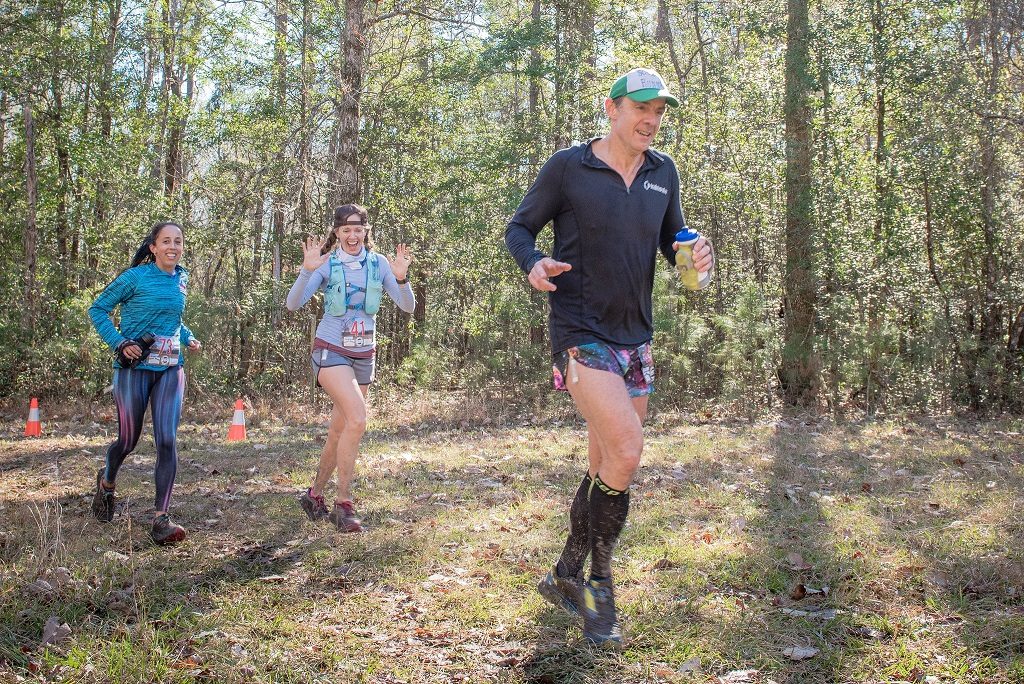
Now, please don’t get me wrong: I think it’s absolutely commendable to try and better yourself as a runner. However, what “better” means is going to be different for each individual. Maybe that means running faster, maybe that means running further, maybe that means finishing an entire training plan successfully without missing any workouts.
I’ve seen too many runners become so wrapped up in hitting certain paces or distances, that they become wildly frustrated when they can’t reach or stay at those levels. So much so, that they often begin to resent running as a whole.
The bottom line is that your speed, and distances that you are able to run, will ebb and flow over the course of your running career. This is completely normal, and does not make you any more- or less – of a runner. Keeping this in mind will allow you to maintain a healthy emotional relationship with running, and keep the joy in the act of running.
And if you do become overly obsessed with paces, and find yourself constantly staring at the readout on your watch…consider ditching your GPS watch for a while. Trust me, it works.
You Don’t Have to Do it All at Once
A common theme among new runners is this:
- Start running.
- Fall in love with running.
- Run your first race.
- Decide you have to run ALL OF THE RACES AS SOON AS POSSIBLE.
- Get hurt and/or burn out and/or piss off your family because your suddenly draining your bank account and/or spending every weekend running races.
Sound familiar? Let me tell you – I speak from experience on this one. (Who are we kidding, I speak from experience on all of these points. Making mistakes and blogging about it so you don’t have to, since 2009). When I first started running, I went from local 5K to full marathon in ten months, and immediately wanted so much more. I wanted marathon maniac status, and a Boston Qualifying time, and what about an Ironman, and…you get the idea. I wanted to collect all of the medals and all of the trophies, and I felt like I had to do it ALL as soon as humanly possible.
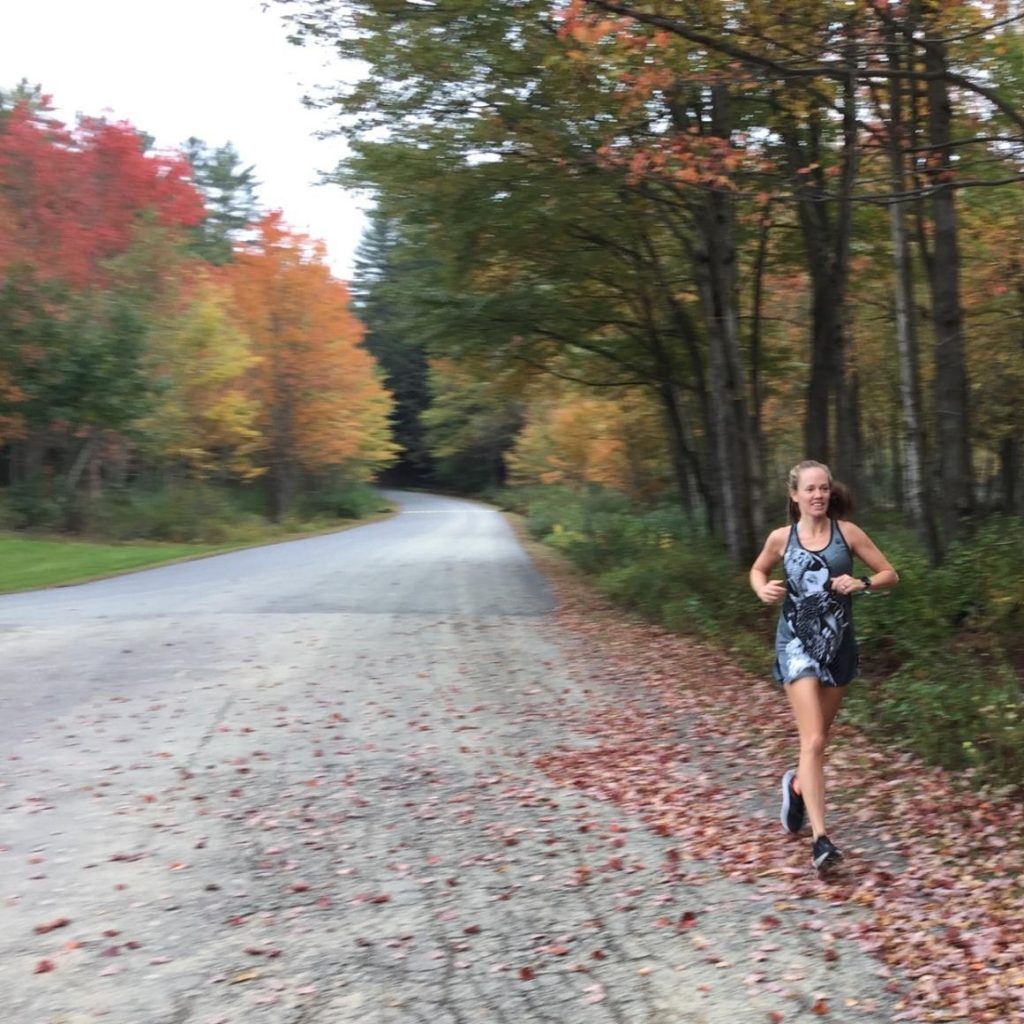
It was my older sister who was constantly reminding me that “running isn’t going anywhere” and encouraging me to slow down with my incessant goals. It sounds so silly, but at the time I was acting like if I didn’t check these races off of my proverbial bucket list now, I may never have a chance to in the future.
Related: Couch to 100K
Now, especially as an ultrarunner, I realize that in so many instances experience – rather than fitness alone – help contribute to running successes.
Don’t burn yourself out trying to achieve all of your goals at once. Instead, enjoy the journey, relish in the experiences that come with each run, each race, each new running experience. If you’re going to grow old with running, there truly is no reason to rush.
Respect Your Body
A strong mind can take you far in running, but it’s nothing without a healthy body.
Think of it this way: if you have a brand new car, and you want that car to last you for many years to come, will you try to run that car into the ground as soon as possible? Or will you take care of it, driving carefully, getting regular oil changes and maintenance. Your body works the same way.
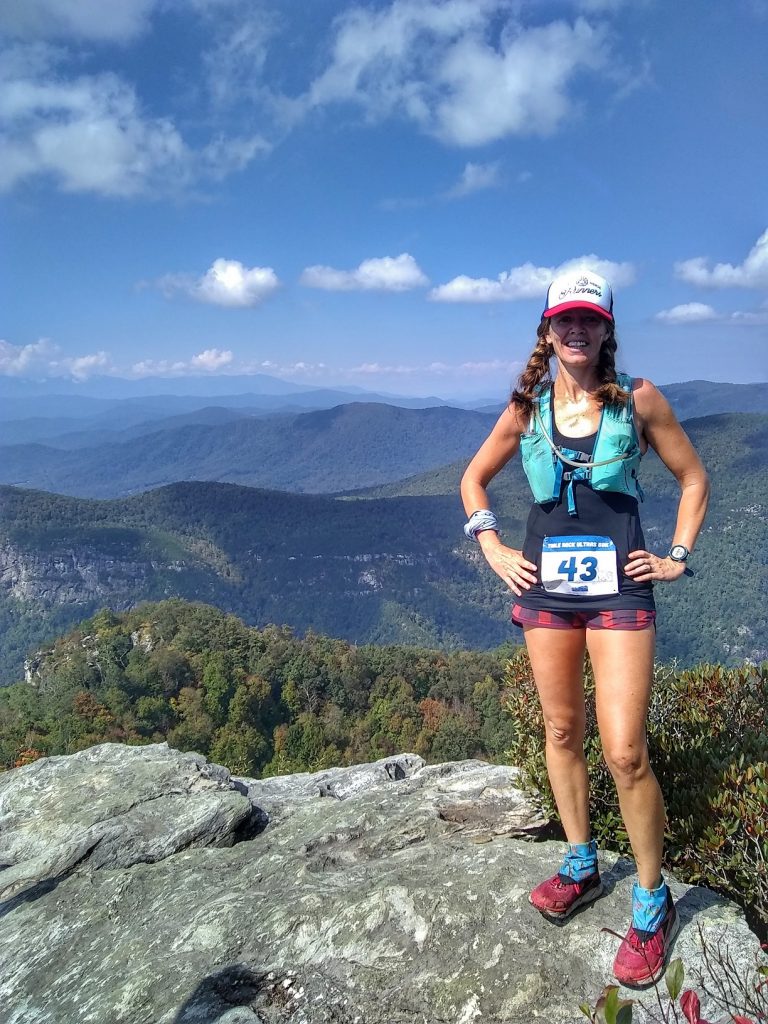
Except unlike a car, you can’t stroll on down to a dealership and replace your body when it stops running. So you’ve got to take care of the one body you’ve got. Be sure to:
- Fuel your body with healthy foods the promote recovery.
- Remember that rest is just as important as training.
- Balance seasons or cycles of intense training with “off” periods.
- Strength train.
- Have an injury? STOP RUNNING. Seek professional guidance on how to most effectively and safely return to running.
Related: Running Through Pain…and How It’s a Terrible, Horrible, No Good, Very Bad Idea.
Ultimately, the key to growing old with running is to NOT run your body into the ground, but rather to keep it well oiled machine capable of withstanding hundreds of thousands of miles over many years to come.
You Don’t Have to Race
Training for a race can be a highly rewarding experience. It gives purpose to your workouts, it gives you motivation to get out the door and put in the work. It’s a process, with a tangible, positive outcome.
That said, sometimes, training for a race can be a highly frustrating experience. Especially if you are having a hard time hitting specific workouts, finding the time to train, or your heart just isn’t really into the idea of the goal race. Running can start to feel like a chore, and even become dreadful.

In a world fueled by social media, where we are constantly bombarded with images and reminders of upcoming races and events, other people’s accomplishments or future goals, and plenty of other sources of “FOMO” (fear of missing out), it can be easy to see why so many runners think they have to constantly have a full racing calendar.
But you don’t.
It’s perfectly acceptable to run simply for the sake of running, without an end goal in mind. There is plenty of joy to be found in the pure act of running, just because we can.
You’ll Probably Have Downtime, and That’s OK.
Like it or not, you’ll probably have periods of life where you aren’t running. Even with careful training, you may find yourself sick or injured. Maybe you tripped over a root on a gnarly technical trail and broke your ankle. Maybe you had to unexpectedly have your appendix out, and you can’t run for another 4-6 weeks.
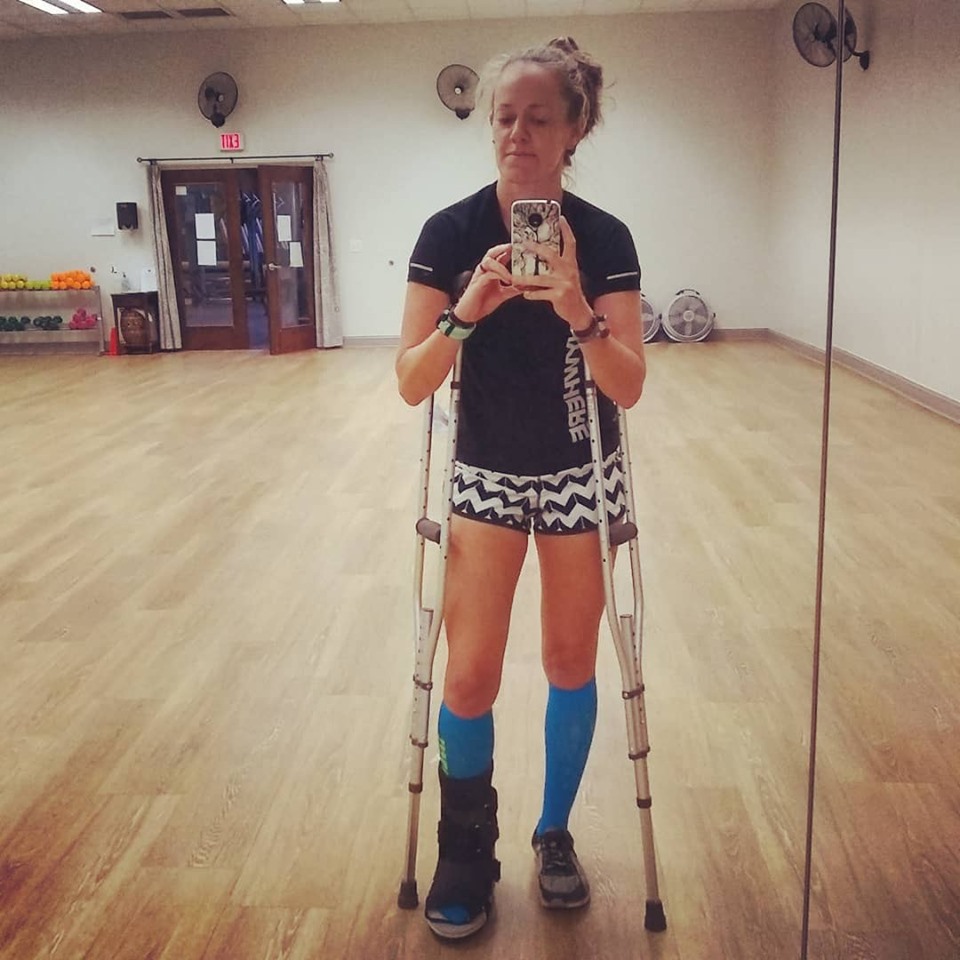
Or maybe, life just got a little chaotic, other responsibilities had to take priority, and running got put on the backburner.
Related: The Find the Time Comparison Trap, and Why I Hate It.
Bottom line, it’s highly unlikely you won’t experience some sort of downtime during your life where you can’t or aren’t able to run. It’s important to remember that like everything in life, your running will ebb and flow, there will be highs, lows, peaks, and valleys. Just because you aren’t running for a while doesn’t mean you won’t run ever again. It also doesn’t mean that you won’t get your fitness back, or you won’t be able to do the things you did in the past, again in the future.
Embrace the downtime as best as you can and remember: this is not the end of the world. The best part about growing old with running is knowing that running will be there waiting when you are ready again.
Your Running is Yours…and Yours Alone
The great thing about this sport is that your running doesn’t have to look like anyone else’s. You can run only on trails, or only on treadmills. It’s totally your perspective if you consider a 5K a “long” distance, or a 50K a “short” race. It doesn’t matter if you race to set personal records, or if you choose not race at all. You can run to collect medals, you can run to pickup garbage.
And the best part? You can change your mind about what your running looks like any time you choose. Because it’s YOURS.
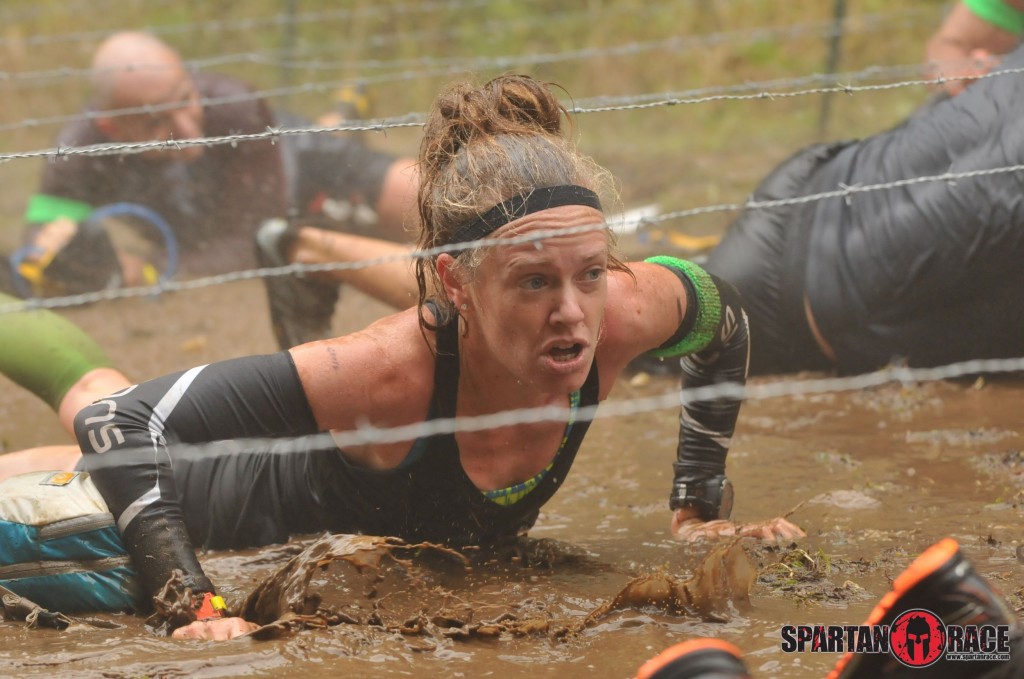
In fact, it’s important to remember that what running means to you probably will change over time – and that’s OK too. You might not always be chasing podiums or trying to beat your marathon time. You may one day decide you love trails, and stay off the pavement for years to come. Then one day without warning, you might go back.
Keeping an open mind about your running, rather than getting caught up in unnecessary expectations about what running should look like will help you maintain a healthy relationship, and grow old with running for years to come.

Heather Hart is an ACSM certified Exercise Physiologist, NSCA Certified Strength and Conditioning Specialist (CSCS), UESCA certified Ultrarunning Coach, RRCA certified Running Coach, co-founder of Hart Strength and Endurance Coaching, and creator of this site, Relentless Forward Commotion. She is a mom of two teen boys, and has been running and racing distances of 5K to 100+ miles for over a decade. Heather has been writing and encouraging others to find a love for fitness and movement since 2009.
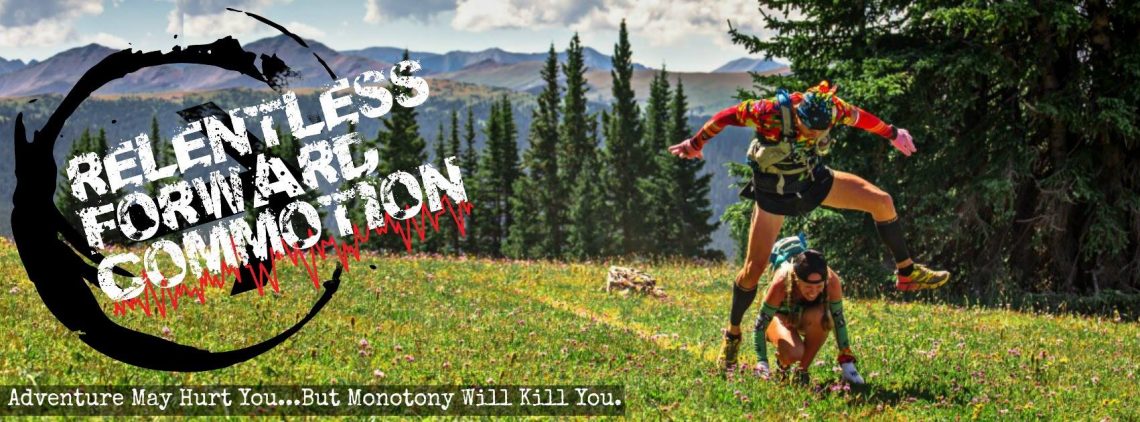
Karen McDonald
Thanks for the blogs
Heather
You are so welcome, Karen! Thanks for reading 🙂
Running My Best Life
I love your real approach to running and writing about it. Making life better is what running is all about! I just wrote about how training for a half marathon can teach us so many life lessons: https://runningmybestlife.com/half-marathon-life-benefits/
jerome innecco
Great article. I just found out about your blog. Thanks for sharing your knowledge.
[email protected]
Great article
Thanks mate.